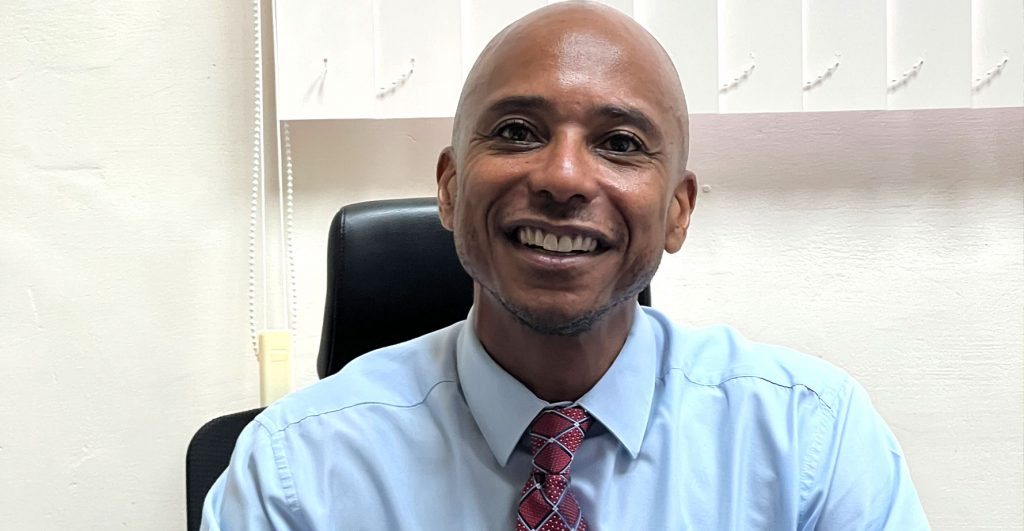Chief Prosecutor Hinds: Bail reform bill is vital
The Office of the Attorney General’s Criminal Division, headed by Chief Prosecutor Chester Hinds, fully supports the controversial Bail Reform Act, which proposes to amend the law to restrict further a violent repeat offender’s right to bail, saying it is vital in ensuring that victims of domestic violence and abuse feel safe.
In his official comments in response to the Bail Reform Act, Hinds states that he often sees violent repeat offenders getting arrested and then being released on an unsecured bail and the offender returns to their victims to inflict more violence.
In these cases, the Bail Reform Act, which would essentially keep repeat offenders in jail without the option to be released on unsecured bail, is vital as victims would feel safer, Hinds said.
“Too many times the OAG Criminal Division has seen a repeat offender get arrested and released on unsecured bail the next day. The offender returns to the victim’s residence inflicting even more violence or threats of violence, resulting in more trauma for the victim and their respective families. In other instances, once the offender is released the victim is too afraid to stay in their own home and is forced to seek protection in a shelter. This bill is vital for keeping victims feeling secure and safe. As a result, people of the Commonwealth will have more confidence in the criminal justice system’s ability to help victims of crimes,” he said.
Hinds explained that the proposed bill would strike a balance between the rights of the accused and public safety.
“The bill takes a strong stance on offenders who commit felony offenses with victims involved. When an offender commits crimes such as violent crimes, most especially crimes of domestic violence such as stalking, strangulation, sexual assault, and assault and battery, an offender will no longer be released on bail to potentially harm another or the same victim who called the police in the first place,” he said.
He stressed that the bill wouldn’t automatically take away a defendant’s right to bail upon arrest; instead, it allows the prosecution to file a motion to deny bail with evidence to show cause why bail should be denied.
“A defendant’s right to bail is not automatically taken upon rearrest. A prosecutor must file a motion to deny bail and show by a preponderance of evidence why the court should deny the defendant’s release through bail. This step allows the court to again balance the need for public safety with the rights of the accused,” Hinds added.
The bill, which was named after Keisha King (the woman who was held hostage and later shot dead by repeat offender Gordon Castro in 2019) hits close to home for Hinds, as he was the prosecutor assigned to King’s killer.
“In 2019, repeat offender Gordan Castro was released on bail. I was the prosecutor that handled the Gordon Castro drug case in 2019. He was allowed to post bail even though he had a kidnapping (domestic violence) conviction in 2015, in which he served three years. It was during his release in the 2019 case where first illegally obtained a gun, then kidnapped his then-girlfriend, Keisha King, who he eventually shot and killed,” he said.
“I knew Keisha King. She was a graduate of the Judiciary’s Drug Court program. Keisha was smart and had a bright future. But like many victims who try to get away from their old life and abusive relationships, they cannot break the cycle of violence because their offender is free. In that case, Gordon Castro should have never been out on bail. If he was not out on bail, Keisha may have had a chance to live a fruitful and promising life,” Hinds added.
Ultimately, Hinds said, it’s because of cases like this that the OAG fully supports this bail reform bill.
“There are many issues that need to be addressed to ensure others are not in the same situation like the Gordan Castro case. This bill works collectively to address some of those issues, which will not only improve public safety, but the victim’s safety,” he said.
The Bail Reform Act is being opposed by 17 lawyers in the CNMI, including the Office of the Public Defender headed by Public Defender Doug Hartig.
























